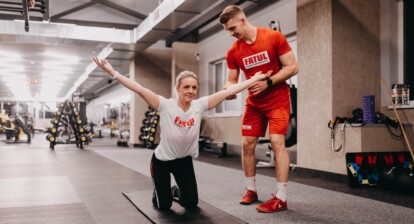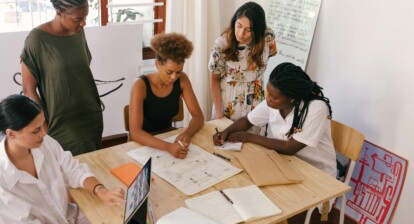“You have to work with prejudice, ” says Zuzana Zamborská, who has been helping companies expand abroad for seven years. It has helped them to operate in more than 10 foreign markets.
She opens the themes of inclusion and diversity which are crucial for society. She and other women started a women’s investment club. She’s a marketing, sales, and human resources strategist. She is currently working on her three projects.
For Action Women, Zuzana Zamborská said in an interview:
- The establishment of a women’s investment club,
- according to which they choose, who they support,
- how many of the overall start-ups are women,
- what kind of start-ups are women getting into.
Zuzana, you’re one of the four women who decided to start a women’s investment club. How did this idea turn out? Did you follow your example from abroad?
The idea came when we met the other co-founder, Lucka, in San Francisco. We were both doing business there at the time, and we were inspired by the investment environment and the involvement of women in it. We wanted to help women in Central and Eastern Europe to start investing. We believe that when we bring more women into the investment world, we will be showing the female role models. We will also increase entrepreneurship among women.
You are four founders from different disciplines. How did you get connected?
It’s funny that Lucka and I first met in San Francisco, even though we’re both Slovaks. We both have similar backgrounds from the startup environment. We then approached Terka, who has experience in venture capital. Terka has experienced a shortage of women in the area of venture capital. Then Vladka joined us with her marketing startup profile. We all sort of knew each other through mutual friends. They got connected into the Lumus project, which gives us complete meaning.
Within the club, you support start-ups in the Central and Eastern European region. What percentage of startups are women?
In my country, it is not a condition that we support only a startup where the founder is a woman, but we attract those in particular. At the same time, we are often called men. It is women among investors who are lacking and want to know women’s views on business.
According to what criteria do you select projects to support investments?
As this is an angel investment, i.e. at a very early stage, it is difficult to look at business results. We look at the founders rather than the personalities and their experiences. Of course, we are also assessing the business and the vertical in which they operate, but as you know, in this day-to-day changing world, it is not always easy to predict where the market will go. There are already startups forming that will affect our lives in 10 years. On the other hand, even though it’s an angel investment, we’re looking for startups that have not only an idea, but at least a concept, that is, a beta version, the first customers, etc.
Follow us on Linkedin!
It is also important for us that we and the investors can help the start-up, be it our know-how, network or expertise in the vertical.
What have you already managed to implement under the investment fund?
So far, we have made three investments – the Romanian HRTech Houston, the Lithuanian PetTech Zenoo and the Dutch market for used BikeFair bicycles.
You’re all women on the team, you’re all still friends?
Yeah, I’d say the opposite is true.
Did you divide your work by talent? Tell us who’s doing what.
Within Lumus, we have divided our tasks more according to long-standing experience, so Terka, who has a VC profile is in charge of the angel community, Vlaďka marketing, Lucka with the research profile of the start-up and their evaluation. I am responsible for partnerships, as I have experience in sales and marketing.
What does the investment club offer? Why is cooperation with you advantageous to startups?
We make up a community from all over the world that wants to help startups. We do not just want to be passive investors.
How are your first supported projects developing? Which one is the most successful?
It is still difficult to assess success as Lumus and the investments are at most 1,5 years old. Meanwhile, all projects are growing and we are trying to help them as much as possible. We have regular meetings with them to discuss their needs. Often, as we are their angel investors, we help them, through our contacts and networks, to find the next round of investment that comes naturally from the growth of startups.
You work remotely, online. What do you see as the main benefits and risks? What do I have to look out for when I’m doing business or working and dealing with most things online? What’s so treacherous?
By being on different sides of the world, we’re operating from a distance. As the main benefit, I see the flexibility that we can go away from home for longer periods and work from there, and being used to being online does not really change anything.
The risks or problems – communication – are on it, and businesses are falling. You have to have a defined channel, system, regularity, or how to make a regular follow-up. At the same time, it is important to create space for discussions on long-term visions, which are very important, but are being shifted for the operation.
Follow us on Linkedin!
What kind of start-up areas do women go into? What is now the ‘ in ’ or the prospective?
The areas into which they are embarking are diverse and cannot be generalized. However, what always works best is if they go into an area with which they have personal experience and want to change it, which is why more and more Femtechs are being created (see the feminist technology version of the term applied to the category of software, diagnostics, products and services that focus on women ’ s health).







